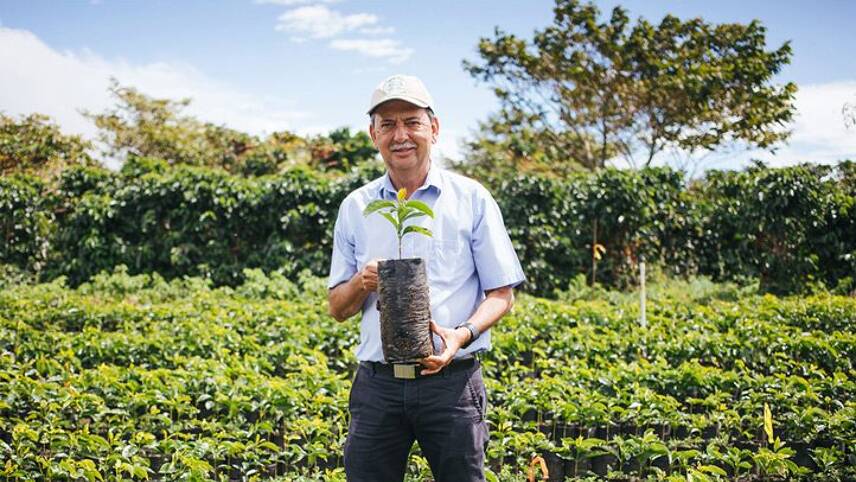Register for free and continue reading
Join our growing army of changemakers and get unlimited access to our premium content

Image: Starbucks corporate
The coffee giant announced the new targets in January and confirmed that its new long-term sustainability vision is to become ‘resource-positive’. This ambition was announced shortly after Starbucks appointed a new chief sustainability officer, Michael Kobori, formerly of Levi Strauss.
While a full roadmap for delivery is not expected to be published until next year, the company announced several first steps at its biennial Investor Day event on Wednesday (9 December). Speakers reiterated the company’s overarching 2030 ambitions alongside their priorities for growth internationally post-Covid-19.
Starbucks’ president and chief executive Kevin Johnson revealed that the company is planning to install onsite solar at five California-based stores by the end of 2021, as part of a new Diversified Renewable Energy Portfolio. It will also sign a Virtual Power Purchase Agreement (VPPA) with a solar farm in Virginia.
This announcement came in the same week that McDonald’s completed new VPPAs for two major wind farms and a large portfolio of solar projects across three US states.
Starbucks has allocated more than $140m to renewable energy procurement over the past two years and claims that this has enabled generation equivalent to 77% of its global annual energy demand. The new projects will take it past the 100% mark and, as such, it will count some of the impact as carbon offsetting. Some 50% of emissions from US-based roasting and beverage manufacturing sites operated by Starbucks can be dealt with in this way by 2022.
Regenerative agriculture and low-carbon menus
Johnson also announced a number of new targets and initiatives around supply chain sustainability and low-carbon products.
Starbucks has this month signed for its intent to support the Dairy Net Zero Initiative, for example. The scheme aims to connect end-user businesses with dairy farmers and other supply chain workers to roll out low-carbon production methods and improve water efficiency and stewardship.
A $50m investment package has also been earmarked for the Global Farmer Fund. This initiative supports coffee farmers across the world to adopt more sustainable farming practices designed to improve soil health and yield while reducing water consumption, fertilizer and pesticide use and emissions.
At the consumer-facing end of the business, Johnson confirmed that all Starbucks stores in the US will begin to stock oat milk. Stores already stock soy milk and almond milk, but oat milk is regarded as more sustainable, as it requires less water to produce and has less deforestation risk.
Investor coalition FAIRR had predicted that 2020 would be a “watershed” year for the transition to plant-based proteins. It has been tracking the ways in which concerns about animal welfare, nutrition and climate impact have changed diets for several years. In 2020, more consumers also adopted plant-based diets as a way to save money and in response to reports of Covid-19 outbreaks at meat plants.
The conversation at Starbucks’ Investor Day was lighter on details around plans to reduce waste. This is perhaps to be expected, given that many food and drinks businesses had to pause or scale back reuse initiatives amid lockdown restrictions. Earlier this year, Starbucks switched to strawless lids for cold drinks across Canada and the US, in a move designed to improve recyclability.
Sarah George


Although there’s some good stuff there, this is the same Starbucks that has announced plans to close over 1,000 city centre stores and build as many new drive-thrus. Perhaps we should be asking them to account for Scope 3 emissions of customers driving to buy a cup of coffee, which they could just about as easily make at home? Putting solar panels on the roof of a drive-thru doesn’t make it sustainable…